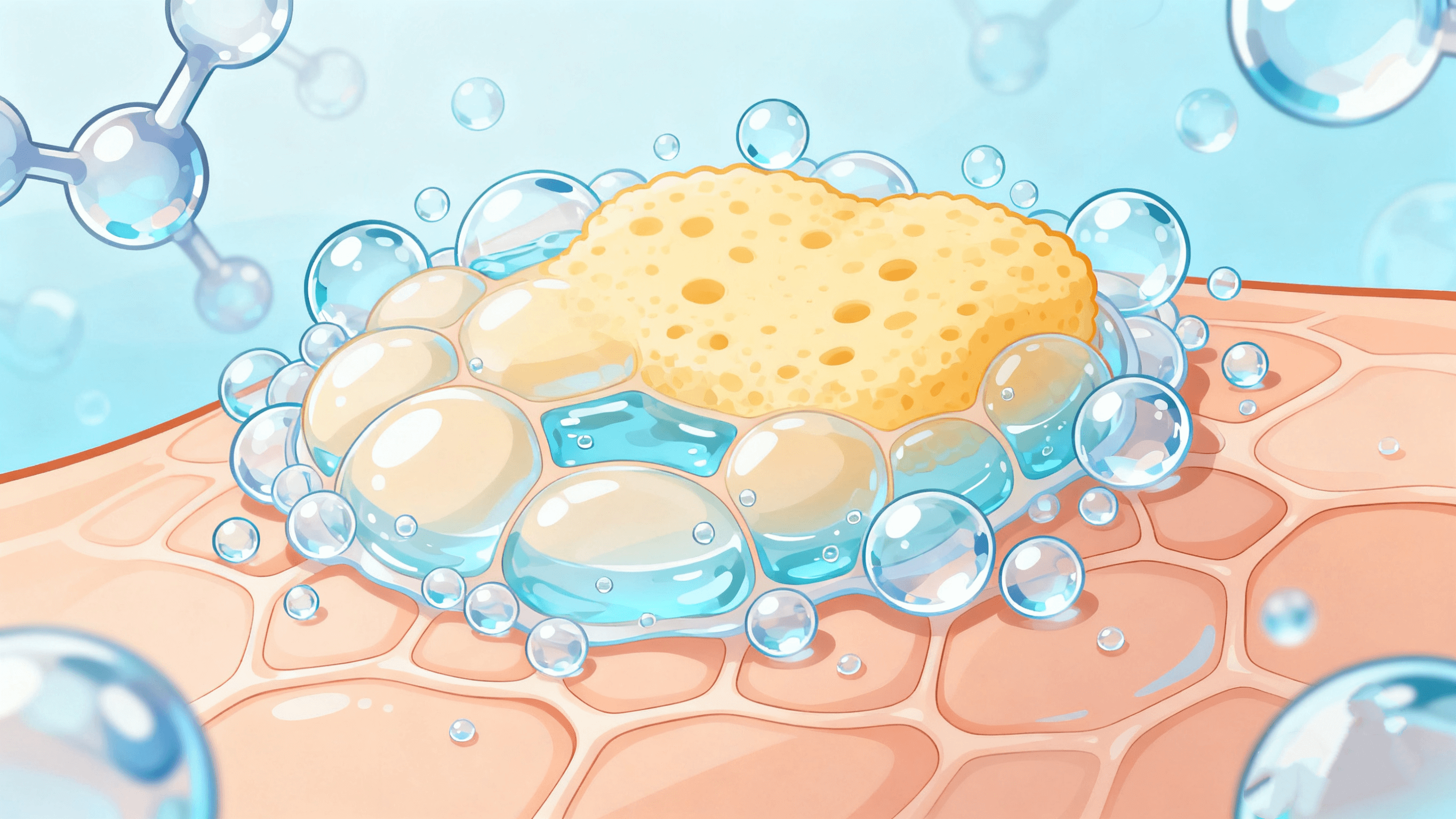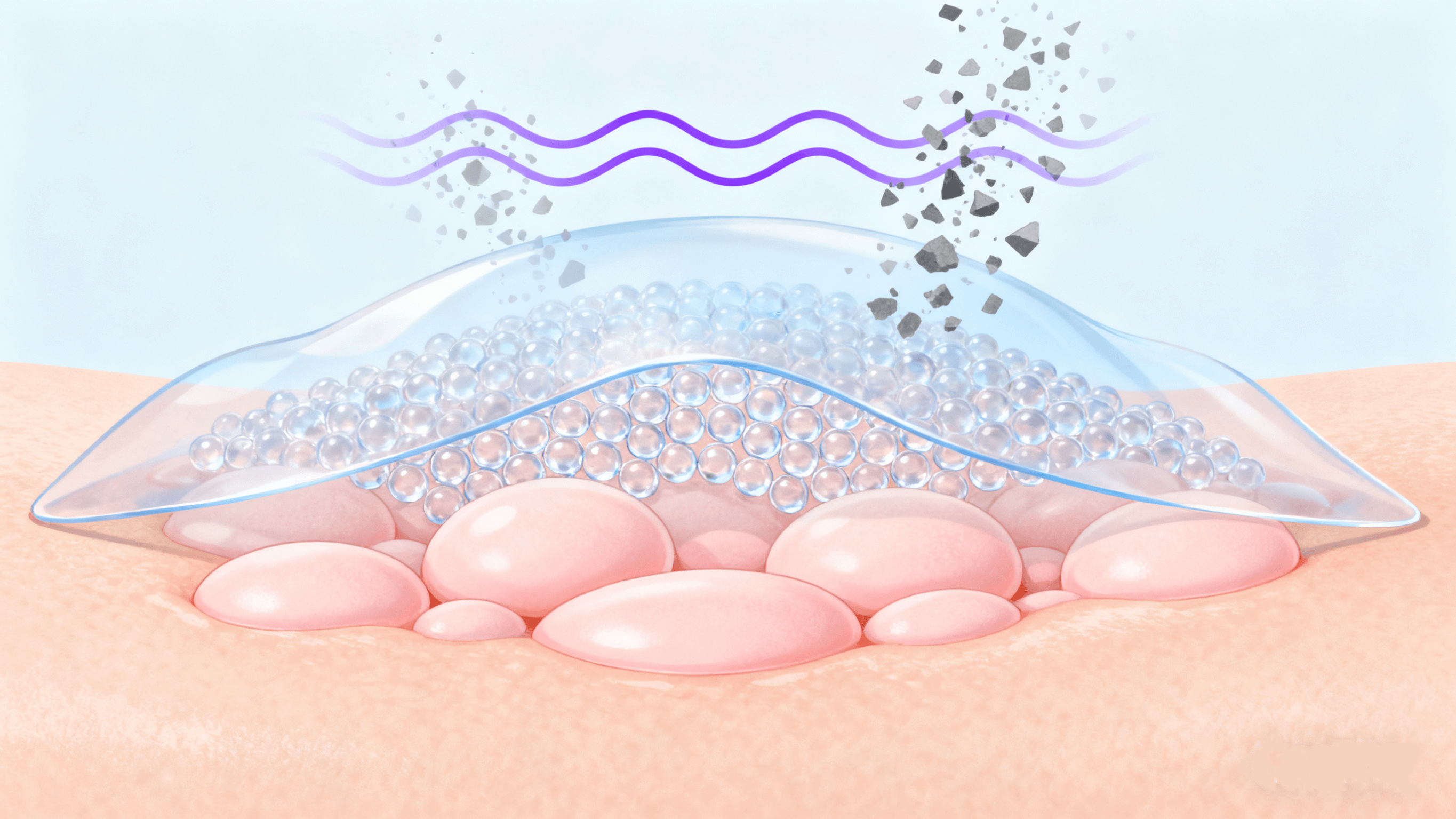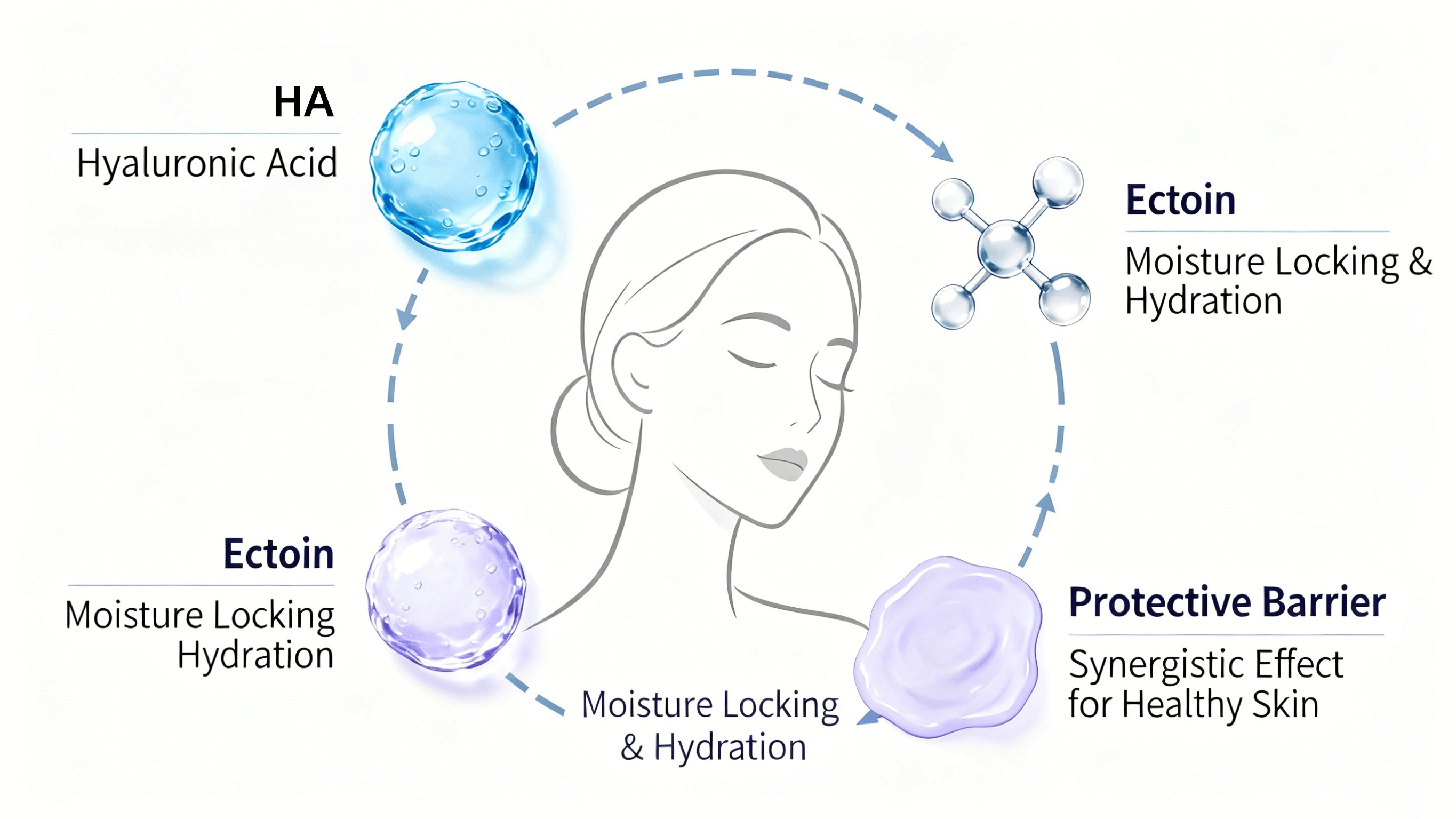Ectoin vs. Hyaluronic Acid – Similar Goals, Different Powers
Release time:
2025-09-15
When it comes to skincare, two names often pop up: Ectoin and Hyaluronic Acid. Both are praised for keeping the skin hydrated and protected, but they don’t work in the exact same way. Think of them as two superheroes fighting for the same cause—healthy skin—but each with their own unique powers.
What Is Hyaluronic Acid?
Hyaluronic Acid (often listed as Sodium Hyaluronate on skincare labels) is a natural substance found in your skin, eyes, and joints. Its superpower is holding onto water—up to 1,000 times its own weight. That means it works like a sponge, keeping your skin plump, smooth, and hydrated.
You’ll usually find Hyaluronic Acid in:
Serums
Moisturizers
Face masks
In short, it’s your go-to ingredient if your skin feels dry, tight, or dull.

What Is Ectoin?
Ectoin is a bit less famous, but it’s a rising star in skincare. Originally discovered in microorganisms that survive extreme environments like deserts and salt lakes, Ectoin acts like a tiny protective shield.
Its main powers include:
Protecting skin cells from UV rays, pollution, and stress
Reducing inflammation and redness
Strengthening the skin barrier
You’ll often find Ectoin in products designed for sensitive or stressed skin.

Similar Goals, Different Powers
So how do they compare?
Hydration: Hyaluronic Acid is the champion at drawing and holding water.
Protection: Ectoin shines at defending your skin from damage.
Everyday use: Hyaluronic Acid is great for daily hydration.
Skin under stress: Ectoin is ideal when your skin faces harsh conditions, like too much sun, pollution, or dryness from travel.
It’s not really about choosing one over the other—they actually work even better together. While Hyaluronic Acid floods your skin with moisture, Ectoin makes sure that hydration and your skin cells are protected.
Which One Should You Try?
If your main issue is dryness, start with Hyaluronic Acid.
If your concern is sensitivity or environmental stress, reach for Ectoin.
And if you want the best of both worlds—look for products that combine the two.
Final Thoughts
Ectoin and Hyaluronic Acid may share the same goal—healthy, glowing skin—but they use different strategies to get there. One keeps your skin hydrated, the other keeps it protected. Together, they form a powerful duo that your skin will thank you for.

BLOGS
Knee osteoarthritis (KOA) is a common chronic joint disease with an increasing prevalence among older adults, severely impacting quality of life. Sodium hyaluronate (SH), as a core component of synovial fluid, is a key drug in KOA treatment. However, different molecular weights of SH exhibit significant differences in efficacy and mechanism of action, directly affecting treatment options. This article focuses on interpreting its differentiating effects to provide a reference for clinical application. [Reference Interpretation: Figure 1]
Is Hyaluronic Acid Ingredient Good for Acne? Safe Hydration for Breakout-Prone Skin
Learn whether hyaluronic acid is good for acne-prone skin, if it clogs pores, how it supports the skin barrier, and how to pair it with retinoids, niacinamide, and BHA—plus routine tips and FAQs.
Will Sodium Hyaluronate Clog Pores?
Will sodium hyaluronate clog pores? Learn why it’s usually non-comedogenic, what causes breakouts in HA products, and how acne-prone skin can use it correctly—plus why high-quality manufacturing standards matter.
Sodium Hyaluronate in Lipstick: Hydration Hero or Marketing Hype?
Hyaluronic Acid Lipstick: hydration hero or hype? Learn why water-soluble sodium hyaluronate struggles in waxy lipsticks—and how oil-dispersible HA can actually help.
Can Low Molecular Weight Sodium Hyaluronate Really Penetrate the Skin?
Can low molecular weight sodium hyaluronate penetrate the skin? This science-based guide explains how molecular weight affects skin interaction, hydration, and epidermal penetration.
What is Sodium Hyaluronate Crosspolymer?
Discover what Sodium Hyaluronate Crosspolymer is and why skincare brands are increasingly using this advanced form of hyaluronic acid. Learn how it’s made, how it compares with regular HA, its long-lasting moisturizing benefits, and how to choose a reliable manufacturer like Focusfreda for high-quality Sodium Hyaluronate Crosspolymer.








